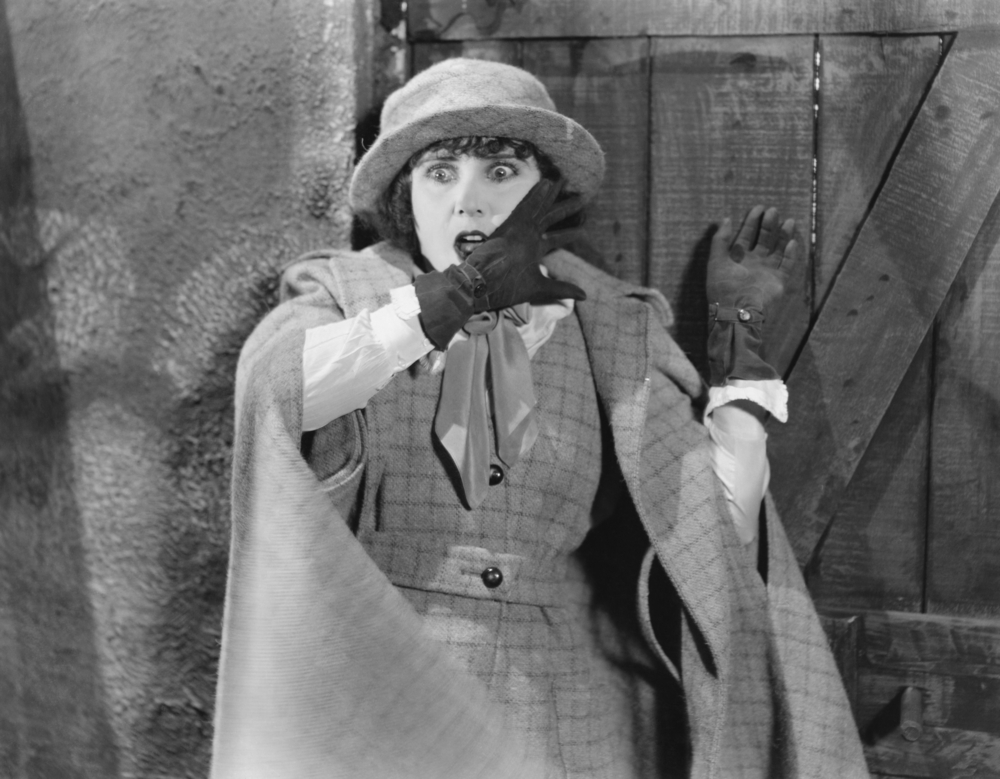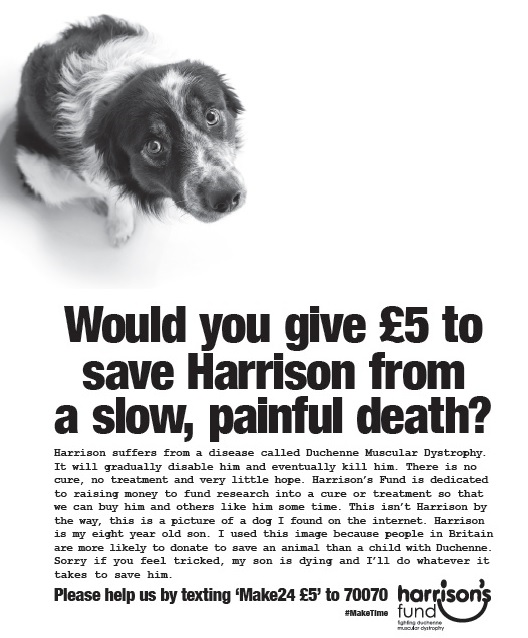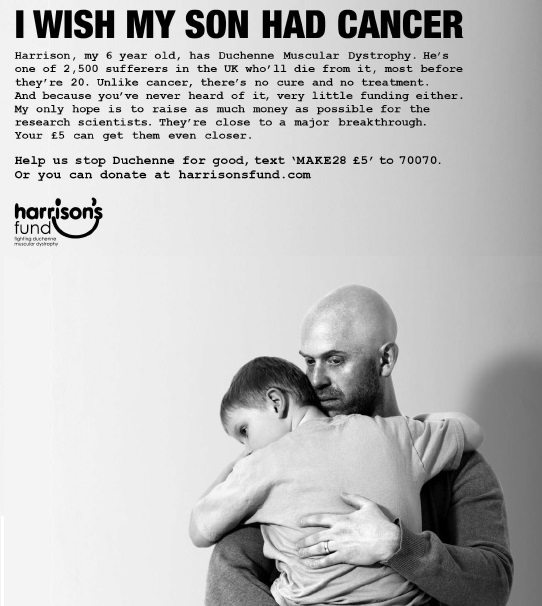
Jenny Ramage interviews Alex Smith, the father behind the controversial ‘I Wish My Son Had Cancer’ and ‘I Wish My Son Was a Dog’ campaigns, and his charity’s creative consultant, Geoff Gower.
Alex Smith and Geoff Gower really got people talking with their two ad campaigns for Harrison’s Fund - the charity Alex founded for his son, who has Duchenne muscular dystrophy. The first ad, which had the shocking headline ‘I wish my son had cancer’, received a mixed response from the public but went on to win over 30 international advertising, press and copywriting awards. The second campaign, ‘I wish my son was a dog’, highlighted the fact that people are more likely to donate to save a dog than to save a child. I caught up with Alex and Geoff to find out more about the thinking - and the feeling - behind these two highly controversial campaigns.


Did the I Wish My Son Had Cancer headline primarily employ shock tactics to draw attention to Duchenne?
ALEX: The campaign was shocking; you could look at the advert and say: “That man is an absolute fruitcake, how could he wish that for his son?” But the fact is, the headline was based in honesty and truth. It wasn’t there just to shock. It was there to make people want to read more, to instigate debate and a bit of controversy, and then open up that conversation so that people actually talk about it. Which is something that wasn’t really happening in the world of Duchenne before.
GEOFF: Although executed differently, what we did with the campaign was no different from when Bob Geldof stood in Ethiopia surrounded by the most shocking and appalling scene imaginable, and said “give us your f***ing money”. The same rules apply: you need people to genuinely be moved, and in this case they had to empathise with Alex as a father in a position which is unthinkable. So yes, the headline was shocking, but not for the sake of it. It’s Alex’s reality, and you have to be that brutally honest sometimes in order to create a reaction and start that much-needed conversation.
Indeed, the campaign got people talking. How did you feel about the more negative responses?
GEOFF: The advert did cause offence to some people, for which we have to accept responsibility. Some people were upset, particularly those who have children with cancer, and they had every right to be. Again, that’s their truth, their situation. While we apologised for causing any offence, at the same time I don’t think Alex would apologise for telling it like it is. In terms of the overall impact, it was unbelievably positive and created a completely different scale of awareness for the charity. What was really telling was the huge number of parents who have kids with Duchenne who said “that’s exactly how I feel, and I couldn’t agree more”.
ALEX: I had messages saying my methods are disgusting and despicable and that I shouldn’t have children. But I think in charity advertising now you need something to make it stand above the rest of the stuff on the page. We wanted to be different, and that’s what we set out to do. I think if you’re brave and you believe that it’s right, then you should never be afraid of doing it.
What would you say to people who think you’re picking a fight with, or trying to divert money away from, animal charities, with the I Wish My Son Was A Dog campaign?
ALEX: I don’t feel we’ve attacked any specific charities, we’ve simply raised a question about people’s choices and inherent values. It’s not about pointing a finger at other charities, it’s about pointing a finger at yourself, and asking yourself whether you’re doing the right thing, and whether your decisions about giving come from an informed point of view. We found that over twice as many people clicked the ad that had a picture of a dog on it than the one that had a picture of a young boy - and that bit of research stands on its own two feet, I think. After the dog campaign we received a donation from a chap which included a note that said: “I’m ashamed to tell you I only read your ad because it had a picture of a dog. If it’d had a picture of Harrison, I’d have moved on.” For me, that says it all.
GEOFF: Again, the dog campaign is about exposing a truth - one that is interesting and that hopefully creates a conversation which makes people think a little bit more about where they’re giving their money.
When it comes to charity headlines that are potentially offensive and upsetting, do you think there is a line that shouldn’t be crossed?
ALEX: If a charity directly attacks another charity, I think that is a line that shouldn’t be crossed. I think challenging values is something entirely different - and this is what we set out to do with the I Wish My Son Was A Dog campaign.
GEOFF: I suppose there is the matter of good taste, and ultimately you wouldn’t find a newspaper prepared to carry something that was uniformly offensive. But I don’t think there is a line at which you should stop reporting the truth. While the cancer campaign had a very shocking headline, the picture was just of Alex holding his son, and the copy explained very quickly where the headline comes from and why that felt like a legitimate thing for him to say. I think it’s about asking yourself where and how it’s appropriate for you to tell your story, rather than feeling you have to censor your truth for fear of offending some people.
Alex Smith is founder of Harrison's Fund and Geoff Gower is executive creative director at AIS London.




